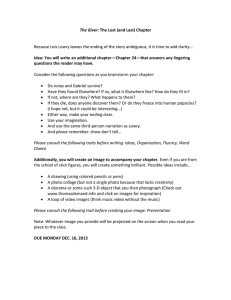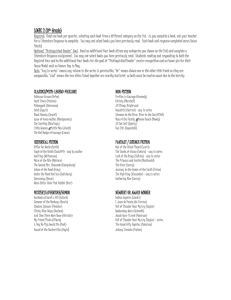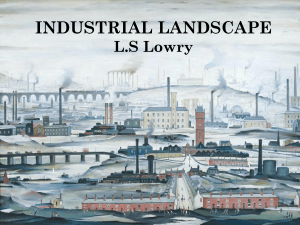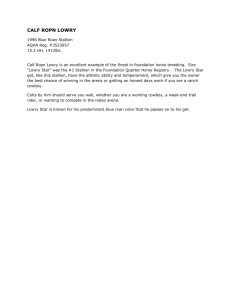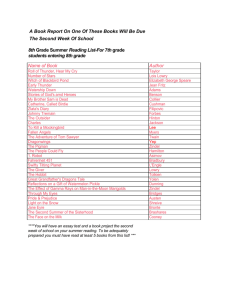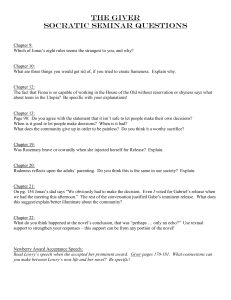SC049-01 - SOCIAL PROBLEMS – Fall ‘09
advertisement
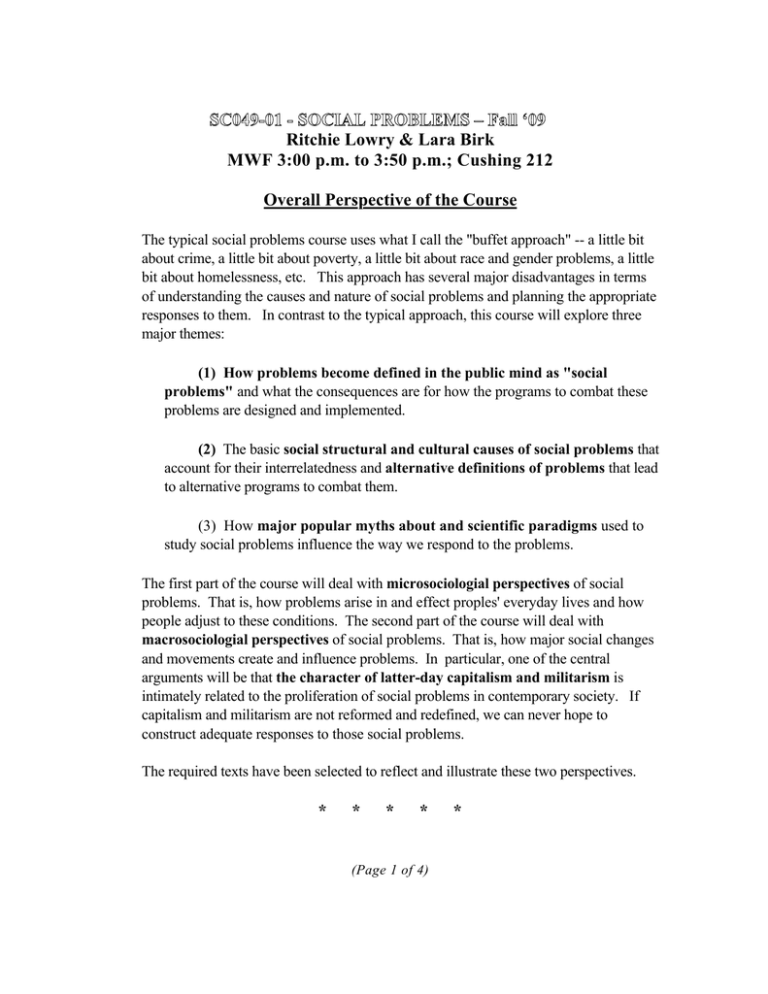
SC049-01 - SOCIAL PROBLEMS – Fall ‘09 Ritchie Lowry & Lara Birk MWF 3:00 p.m. to 3:50 p.m.; Cushing 212 Overall Perspective of the Course The typical social problems course uses what I call the "buffet approach" -- a little bit about crime, a little bit about poverty, a little bit about race and gender problems, a little bit about homelessness, etc. This approach has several major disadvantages in terms of understanding the causes and nature of social problems and planning the appropriate responses to them. In contrast to the typical approach, this course will explore three major themes: (1) How problems become defined in the public mind as "social problems" and what the consequences are for how the programs to combat these problems are designed and implemented. (2) The basic social structural and cultural causes of social problems that account for their interrelatedness and alternative definitions of problems that lead to alternative programs to combat them. (3) How major popular myths about and scientific paradigms used to study social problems influence the way we respond to the problems. The first part of the course will deal with microsociologial perspectives of social problems. That is, how problems arise in and effect proples' everyday lives and how people adjust to these conditions. The second part of the course will deal with macrosociologial perspectives of social problems. That is, how major social changes and movements create and influence problems. In particular, one of the central arguments will be that the character of latter-day capitalism and militarism is intimately related to the proliferation of social problems in contemporary society. If capitalism and militarism are not reformed and redefined, we can never hope to construct adequate responses to those social problems. The required texts have been selected to reflect and illustrate these two perspectives. * * * * (Page 1 of 4) * (SC049; Social Problems; Lowry &Birk) Required Texts: (in order of reading) Michael Parenti, The Culture Struggle (Seven Stories Press, paper) William Ryan, Blaming the Victim (Random House, paper) Charles Derber, Corporation Nation (VHPS/St. Martin, paper) Richard Clarke, Your Government Failed You (RAC Enterprises, hardcover used) * * * * * Grading: There will be an essay midterm (one question) and an essay final exam (two questions). The midterm will count for 40% of your grade, and the final exam will count for 60%. The unique nature of the exams will be explained in class. * * * * * Important Dates: Monday, Sep. 7th – Labor Day: Holiday Wednesday, Sep. 9th - First Class; Introduction to Course; Begin reading The Culture Struggle Wednesday, Sep. 30th - Begin reading Blaming the Victim Monday, Oct. 12th – Columbus Day: Holiday Wednesday, October 28th – Review for Midterm Wednesday, November 4th - Midterm Friday, Nov. 6th - Begin reading Corporation Nation Friday, Nov. 20th - Begin reading Your Government Failed You Wednesday & Friday, Nov. 25th & 27th – Thanksgiving: Holiday Monday, Dec. 7th – Review for Final Friday, Dec. 11th - Last Class; Review for Final Tuesday & Wednesday, Dec. 11th & 12th - Study Days Friday, December 14th - Final Exam @ 9 a.m. * * * * (Page 2 of 4) * (SC049; Social Problems; Lowry & Birk) Office Hours: Ritchie Lowry - Mondays & Fridays, 1:00 p.m. to 2:00 p.m., Wednesdays, 10:30 a.m. to 11:30 a.m., or by appointment in 422 McGuinn;; goodmoney1@aol.com Lara Birk – ☎ X; e-mail lara.birk.1@bc.edu * * * * * Major Issues & Concepts to Be Considered: Animal Behavior vs. Human Behavior Instinct vs. Symbolic Interaction Signs vs. Symbols What Makes Something a Social Problem and Why Who defines social problems & the Sociological Perspective The Social Construction of Reality (Meaning & Order) Personal Troubles vs. Social Issues Origin & Nature of Popular Myths About Social Problems Natural Myth, Evil=Evil, Blaming-the-Victim Social Policy Implications Ontological vs. Utilitarian Ethics and Social Policies Scientific Paradigms & Social Policy Implications Deviance, Disorganization, Functionalism Alternative Theories/Paradigms Labeling Theory, Conflict Theory, Radical Theory Elite Deviance vs. Traditional Deviance Capitalism/Corporations & Social Problems State-Corporation Relationships & Social Problems Militarism, National Security and Social Problems * * * * (Page 3 of 4) * (SC049; Social Problems; Lowry & Birk) Other Items: Though the class is large (about 60 students), class participation in the form of questions and comments is encouraged and most welcome. Though attendance in class is not taken, it is cautioned that extensive absences can have an undesirable impact on the final grade for the course. (From time to time, I will pass around a sign-up sheet to see who is attending, and this will play a role in grading.) Much of the core material will be discussed in class, particularly the major themes and orientation. If you must miss class for reasons of illness or family crises, please check with Ritchie Lowry and/or Lara Birk. Something can always be arranged to make up the material. Though the books will be reviewed in class, as they relate to the themes and orientation of the course, this is no substitute for reading them. You are encouraged to send me and/or Lara e-mail questions, particularly if you find it difficult to speak out in a large course. * * * * (Page 3 of 4) Keeping in Contact: If you want to send Ritchie Lowry e-mail - GOODMONEY1@aol.com with a copy to lowry@bc.edu is best. I welcome all e-mail inquiries and questions at any time. If you have access to the World Wide Web, check out my Home Page for Socially Concerned Investors, Consumers and Businesspeople at http:// www.goodmoney.com. It provides examples of the way in which ordinary citizens, in their roles as investors and consumers, can play an important role in getting corporations and the state to respond to social issues and problems. (Page 4 of 4)
